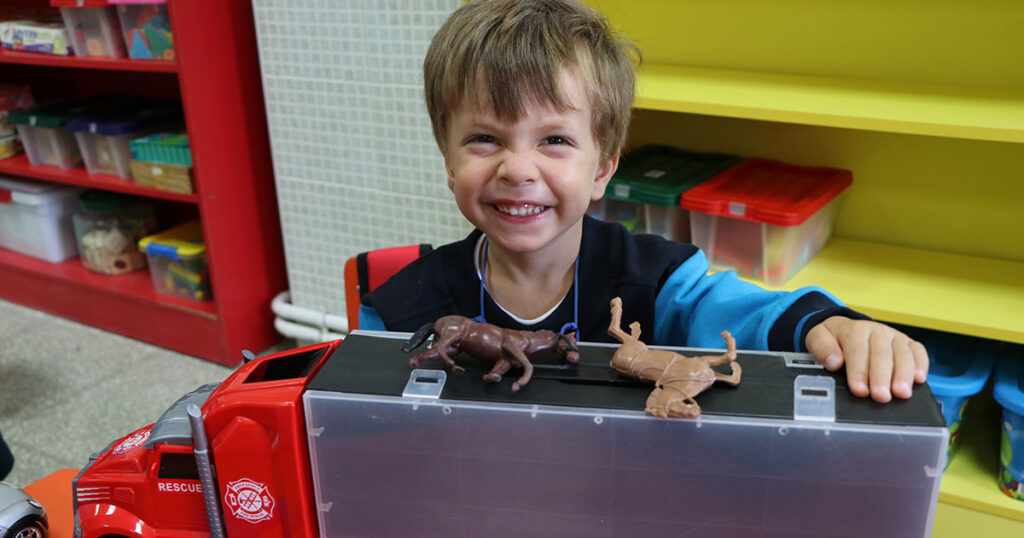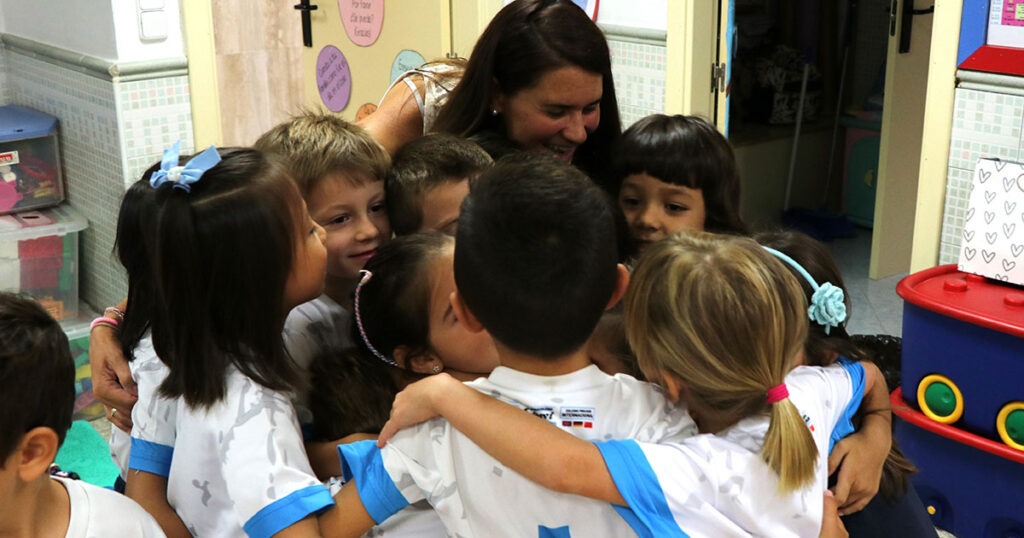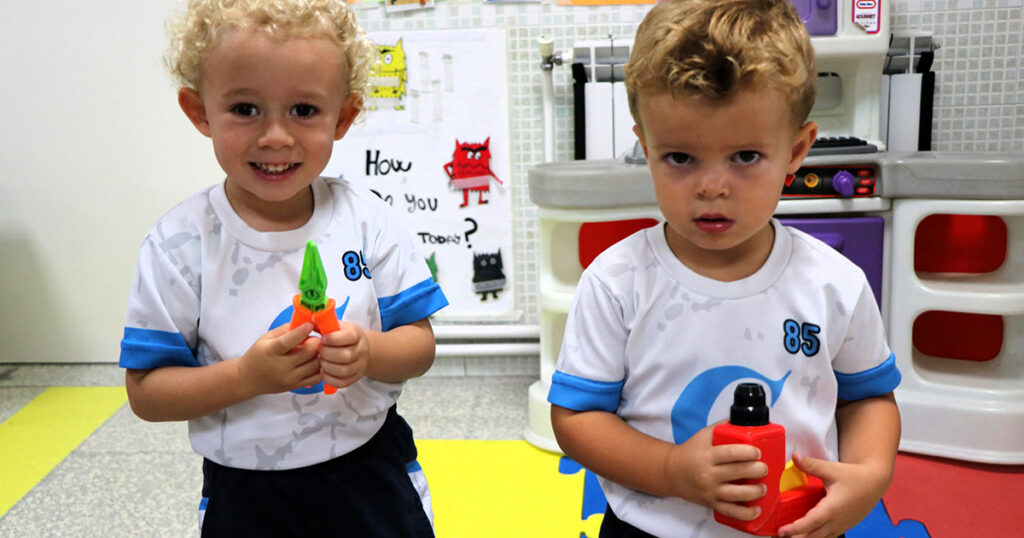In the current educational context, emotional psychology in the classroom emerges as a crucial component for the integral development of students. Beyond the mere acquisition of academic knowledge, emotional understanding and management play a key role in emotional well-being and academic success.
Lack of attention to emotional psychology in education can lead to a variety of problems: stress, anxiety and difficulties in interpersonal relationships. Therefore, it is essential to address this issue from, for example, the Guidance Department, and to promote emotional intelligence as an integral part of the educational process. The reason is that it directly influences students’ personal and academic development.
PROBLEMS ARISING FROM THE LACK OF EMOTIONAL PSYCHOLOGY IN THE CLASSROOM
1. LACK OF EMOTIONAL EDUCATION IN CHILDHOOD
The absence of emotional education programmes in childhood can have a significant impact on children’s emotional development. Lack of good emotional management skills can lead to difficulties in self-control, interpersonal relationships and academic performance.
2. THE NEED TO WORK ON EMOTIONAL PSYCHOLOGY IN THE CLASSROOM
Emotional intelligence is a fundamental skill that students need to meet the challenges of the modern world. However, a lack of focus on developing these skills in the classroom can leave students bereft of the tools they need to properly manage their emotions and resolve conflicts constructively.
3. IMPORTANCE OF EMOTIONAL MANAGEMENT IN THE EDUCATIONAL CONTEXT
Emotional management is essential to create a positive and productive learning environment. When students learn to recognise and regulate their emotions, they are able to concentrate better on their academic tasks, solve problems effectively and relate more empathetically to their peers.
4. THE ROLE OF EMOTIONAL INTELLIGENCE IN ADOLESCENTS
During adolescence, students experience a number of emotional and social changes that can be overwhelming. It is crucial that they develop emotional intelligence skills to cope with these challenges in a healthy way. Lack of support in this area can contribute to mental health problems, poor academic performance and risky behaviours.

In conclusion, these issues underline the critical importance of actively promoting emotional psychology in the classroom to ensure students’ emotional well-being, academic success and social skills.
AWARENESS OF THE IMPORTANCE OF EMOTIONAL INTELLIGENCE IN THE EDUCATIONAL FIELD

ALARMING STATISTICS ON PUPILS' EMOTIONAL WELLBEING
According to recent studies, an alarming percentage of adolescents experience high levels of stress, anxiety and depression, which negatively affects their academic performance and overall quality of life. These figures are a wake-up call for the urgency of addressing the promotion of emotional psychology in the classroom.
VIEWS OF EXPERTS IN PSYCHOLOGY AND EDUCATION ON THE NEED TO PROMOTE EMOTIONAL PSYCHOLOGY IN THE CLASSROOM
Emotional intelligence experts, such as Daniel Goleman, have repeatedly stressed the critical importance of promoting emotional psychology in the classroom. In terms of emotional intelligence, Daniel Goleman argues that emotional skills are as important, if not more important, than cognitive skills. All this in terms of personal and professional success.
In addition, other experts agree that emotional intelligence is fundamental to cultivating students who are resilient, empathetic and able to face life’s challenges with confidence.
RESEARCH AND STUDIES THAT SUPPORT THE BENEFITS OF EMOTIONAL EDUCATION IN CHILDHOOD
Numerous researches and studies support the benefits of the emotional education in childhood. These studies have shown that emotional education programmes in schools do not only improve the emotional well-being The students’ academic performance, their conflict resolution skills and their general behaviour are also positively impacted. In addition, students who receive emotional education in childhood have been found to have better stress management skills and healthier interpersonal relationships throughout their lives.
This evidence shows once again the urgent need to raise awareness and promote the importance of emotional intelligence in education, not only for the well-being of individual students, but also for the success and prosperity of society as a whole.
NEED FOR A SOLUTION
INTEGRATING EMOTIONAL EDUCATION INTO THE SCHOOL CURRICULUM
It is imperative that education policy makers and school leaders recognise the importance of integrating emotional education in early childhood and school curricula in a systematic and coherent way. This involves the inclusion of specific programmes designed to teach students emotional intelligence skills from an early age. An urgent call to action is needed for education systems to take concrete steps to promote students’ emotional development as an integral part of their educational experience.
RESPONSIBILITY OF EDUCATORS AND THE EDUCATIONAL COMMUNITY IN PROMOTING EMOTIONAL PSYCHOLOGY IN THE CLASSROOM
Educators have a key role to play in promoting emotional psychology in the classroom. In addition to imparting academic knowledge, they should serve as role models. Also as facilitators of the emotional growth of their students. This involves developing skills in recognising and managing emotions well in both themselves and their pupils. In this way, a school environment can be created that fosters empathy, resilience and self-awareness.
However, this responsibility lies not only with educators, but also with the whole educational community. Here we would include parents, school administrators and legislators. All of them should actively support and promote the inclusion of emotional intelligence in education.
SOLUTIONS TO PROMOTE EMOTIONAL PSYCHOLOGY IN THE CLASSROOM



1. DEFINITION OF EMOTIONAL INTELLIGENCE
Emotional intelligence is the ability to perceive, express, understand and manage emotions. This is fundamental if we take into account that the more we perfect this capacity, the better our mental health and our social development will be, with all that this entails. From there, do we know how to detect it? How to increase and improve it?
FOUR TIPS TO DETECT WHETHER OUR EMOTIONAL INTELLIGENCE IS HIGH OR LOW
If we want to know whether we are emotionally intelligent or not, we need to check the type of responses we offer in different situations. That is why we must:
- Think about our reactions. When faced with a disagreement that ends in an argument, the correct response that denotes high EQ would be to try not to take it personally. People who lack emotional intelligence are more likely to react without taking the time to weigh the pros and cons of how to deal with the situation.
- Seeing situations as a challenge. If we are able to recognise negative emotions in ourselves and see difficult situations as a challenge – focusing on positive emotions and persevering – we are likely to have high emotional intelligence.
- Modifying emotions. Of course, there are situations in which emotions can get the better of us, but if we are emotionally intelligent, it is most likely that when this happens, we will have the necessary skills to control ourselves.
- Putting ourselves in the place of the other. If we are able to extend this ability beyond our own personal functioning, it is a clear indication that we have high levels of emotional intelligence.
TECHNIQUES TO IMPROVE EMOTIONAL INTELLIGENCE
If we are aware that our emotional intelligence is low, there is no need to worry. It is an innate cognitive competence of human beings, which if worked on properly can be improved. And we can do it if we follow these tips:
- An emotion diary should make it easier to keep track of what you are feeling. Identifying what was experienced (stress, sadness…), will help us to release all the situations of the day and to learn to recognise these emotions, and thus improve emotional intelligence. It only takes 10 minutes and it is recommended to do it before going to bed.
- It is also very helpful to practice meditation. It is very suitable for learning to relax and control emotions through it. The more it is practised, the more it can be used anytime, anywhere.
- Reading books on emotional intelligence helps a lot. So does enrolling in workshops because they allow you to go even deeper into the subject and even resolve doubts on the spot.
- Expressing emotions and sharing them with the people around us is better than keeping them bottled up and tortured inside. When you perceive an emotion you have to allow yourself to experience it; it is a matter of adaptability.
“Emotional skills are as important, if not more important, than cognitive skills”.
2. IMPLEMENTING SPECIFIC PROGRAMMES TO WORK ON EMOTIONAL INTELLIGENCE IN THE CLASSROOM
A key solution to working on emotional intelligence in the classroom is the integration of specific emotional education programmes for children into the school curriculum
These programmes should be designed to teach students practical emotional intelligence skills, such as recognising and managing emotions, empathy and conflict resolution. The contents of these programmes may include practical activities, group discussions and reflective exercises to help students develop greater emotional awareness and skills to manage their emotions effectively.
3. TEACHER TRAINING AND EDUCATION IN EMOTIONAL PSYCHOLOGY AND EMOTIONAL MANAGEMENT
It is essential to provide training and education for teachers in emotional psychology in the classroom and emotional management so that they can adequately support the emotional development of their students.
This involves providing them with tools and resources to understand and address their emotional needs. Also effective strategies for fostering an emotionally safe and healthy classroom environment. Continuous training in this area can help educators to improve their skills. The aim is to promote emotional intelligence and effectively manage emotionally charged situations in the school environment.
4. FOSTERING AN INCLUSIVE AND EMPATHETIC SCHOOL ENVIRONMENT
Creating an inclusive and empathetic school environment is essential to promote students’ emotional development. This involves fostering a school culture that values diversity, empathy and mutual respect. Also, to provide emotional and social support to all students.
By creating a school environment that prioritises emotional well-being, the development of emotional psychology in the classroom can be effectively promoted.

HOW TO WORK ON EMOTIONAL PSYCHOLOGY IN THE CLASSROOM IN CASVI VILLAVICIOSA
Emotional psychology in the classroom is worked on on a daily basis and at all stages of education at Casvi Villaviciosa International Private School. The reason is clear. The acquisition of these emotional competences. prepare children for life and enable them to prevent social dangers both in and outside school.
The International Baccalaureate methodology (PYP in Pre-school and Primary, MYP and DP) taught at our school also helps us to achieve this.
It is clear that promoting emotional psychology in the classroom is fundamental for the well-being and success of students.
Recognising this importance, we are committed to continue working tirelessly to promote emotional education in childhood and in the school environment.
We invite educators, parents and the entire education community to join us in this important effort. Together, we can work together to provide our students with the tools and skills necessary for proper emotional management. In this healthy way they will be able to reach their full potential both academically and personally.
Emotional intelligence is key to success in life!



